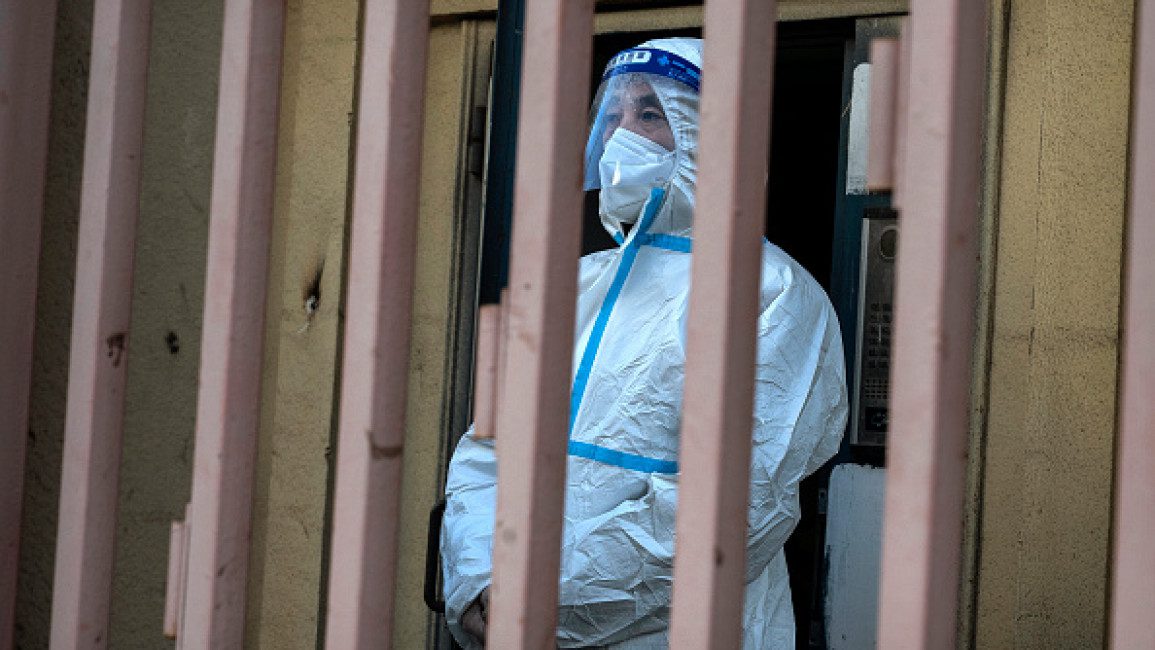World
After fatal fire, protests break out in Xinjiang and Beijing

Public resentment in China is growing. As countrywide infections established new high, COVID-19 lockdowns around the nation erupted into unusual demonstrations in Beijing and China’s far western Xinjiang province.
According to footage shared on Chinese social media on Friday night, crowds gathered in Urumqi, the capital of Xinjiang, on Friday night, yelling “End the lockdown!” and raising their fists in the air. A tragic fire on Thursday sparked resentment about their protracted COVID-19 confinement.
Videos showed individuals chanting the Chinese national song, which includes the line “Rise, those who refuse to be slaves!” as others screamed for the lockdowns to be lifted.
According to Reuters, the video was shot in Urumqi, where many of its 4 million citizens have been subject to among of the nation’s longest lockdowns and have been prohibited from leaving their homes for up to 100 days.
Some citizens of the city under lockdown conducted small-scale protests or addressed local officials about the mobility limitations put on them, and some were successful in persuading them into removing them ahead of time. Beijing, the capital city, was 2,700 kilometres (1,678 miles) away.
Ten people were killed in a high-rise building fire in Urumqi on Thursday night. The case went viral on social media as many internet users hypothesized that residents were unable to escape in time because the building was partially locked down. This fire served as a significant catalyst for public outrage.
Internet users continued to challenge the official account when Urumqi officials staged an impromptu press conference in the early hours of Saturday to deny COVID restrictions had delayed escape and rescue.
Everyone in the nation was furious by the Urumqi fire, according to Beijing resident Sean Li.
Residents complained to their local leader and persuaded him to stop the planned lockdown for his colony, “Berlin Aiyue,” on Friday. The conversations were recorded in a video that was shared on social media.
When workmen began installing barriers on their gates, the locals learned about the plot.
He remarked, “Any of us may have experienced that catastrophe.”
According to a Reuters count of social media posts by inhabitants, at least 10 additional compounds had by Saturday night broken lockdown before the stated end date.
In another video sent to Reuters, citizens of Beijing can be seen walking across an outdoor parking lot on Saturday while yelling, “End the lockdown.”
On Saturday, a request for comment was not immediately answered by the Beijing administration.
posing challenging queries
The remarks from officials that the occupants of the Urumqi building had been able to move downstairs and, so, escape were likely regarded as victim-blaming and further fueled public rage, according to
“People trusted the government to make the right choices during the first two years of COVID to protect them from the virus.
People today are cautious of obeying directions and are asking more challenging questions “said Yang.
There are 10 million Uyghurs in Xinjiang.
Beijing has long been accused by rights organizations and Western countries of mistreatment of the mostly Muslim ethnic minority, including forced labour in detention camps. China vehemently denies these assertions.
China argues that President Xi Jinping’s famous zero-COVID policy is important to save lives and keeps the healthcare system from being overburdened. Despite escalating public opposition and the enormous burden it is placing on the second-largest economy in the world, officials have decided to continue with it.
For the second time this year, China said on Friday that it will reduce the amount of cash that banks must keep in reserve, freeing liquidity to support a flagging economy.
According to a note published this week by Mark Williams of Capital Economics, the coming weeks in China could be the worst for the country’s economy and healthcare system since the first few days of the pandemic. This is because efforts to contain the current outbreak will necessitate additional localized lockdowns in numerous cities, which will further dampen business activity.
For Friday, the nation reported 34,909 daily local cases, a modest number by international standards but the third consecutive record. As the illnesses spread throughout several areas, massive lockdowns and other restrictions on travel and activity were imposed.
Shanghai, China’s most populous city and financial centre, tightened testing requirements on Saturday for entering cultural venues like museums and libraries, requiring people to present a negative COVID test taken within 48 hours, down from 72 hours earlier. Shanghai was subject to a two-month lockdown earlier this year.
Reuters reporting
